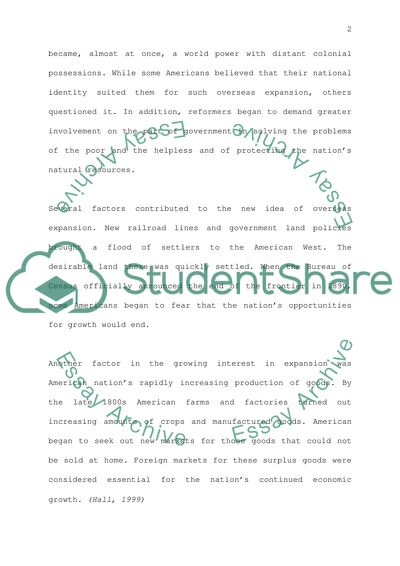Cite this document
(“THE EVOLUTION OF AMERICAN FOREGIN POLICY SINCE THE AMERICAN REVOLUTION Essay”, n.d.)
THE EVOLUTION OF AMERICAN FOREGIN POLICY SINCE THE AMERICAN REVOLUTION Essay. Retrieved from https://studentshare.org/miscellaneous/1538493-the-evolution-of-american-foregin-policy-since-the-american-revolution
THE EVOLUTION OF AMERICAN FOREGIN POLICY SINCE THE AMERICAN REVOLUTION Essay. Retrieved from https://studentshare.org/miscellaneous/1538493-the-evolution-of-american-foregin-policy-since-the-american-revolution
(THE EVOLUTION OF AMERICAN FOREGIN POLICY SINCE THE AMERICAN REVOLUTION Essay)
THE EVOLUTION OF AMERICAN FOREGIN POLICY SINCE THE AMERICAN REVOLUTION Essay. https://studentshare.org/miscellaneous/1538493-the-evolution-of-american-foregin-policy-since-the-american-revolution.
THE EVOLUTION OF AMERICAN FOREGIN POLICY SINCE THE AMERICAN REVOLUTION Essay. https://studentshare.org/miscellaneous/1538493-the-evolution-of-american-foregin-policy-since-the-american-revolution.
“THE EVOLUTION OF AMERICAN FOREGIN POLICY SINCE THE AMERICAN REVOLUTION Essay”, n.d. https://studentshare.org/miscellaneous/1538493-the-evolution-of-american-foregin-policy-since-the-american-revolution.


